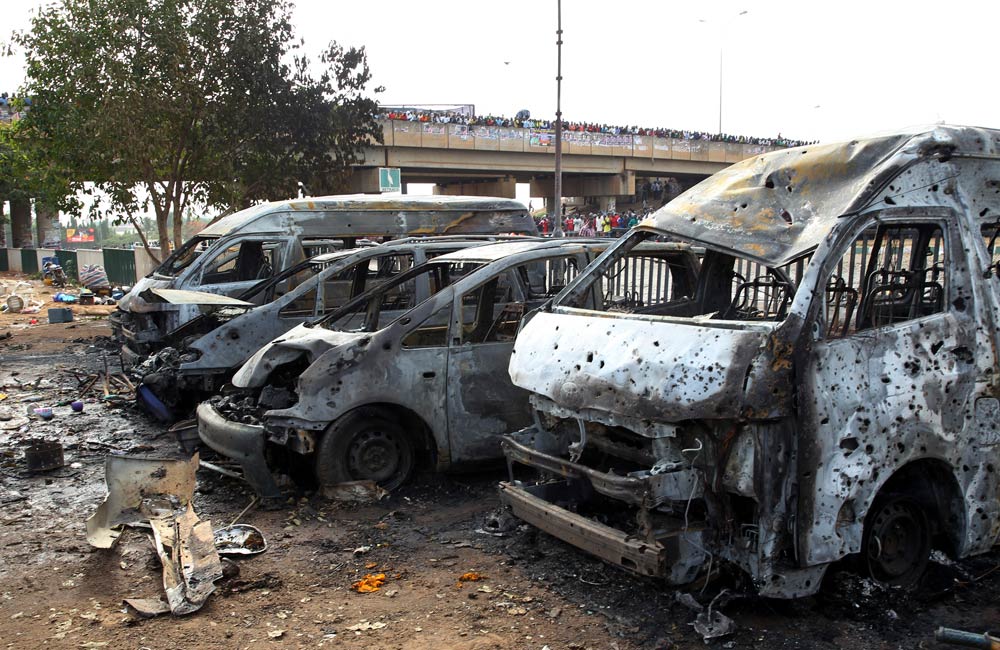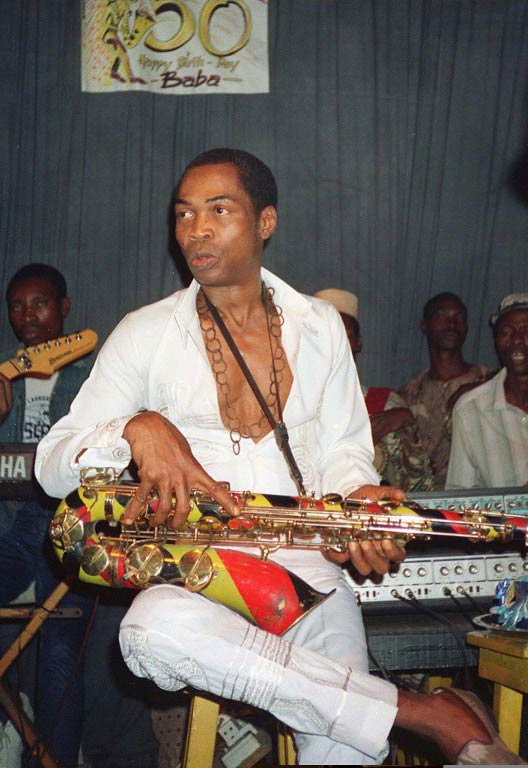Yesterday morning, my colleague got into his car to begin the hour-long commute from Nyanya to our office in downtown Abuja. Ten minutes into the drive out of his estate, he heard a loud explosion about 150 metres from where he was. At the sound of the explosion, he and other drivers slammed their brakes and almost veered off the road. His ears were ringing. The loud boom echoed in his head like a bell. Soon, the screams started. Then, people were running, scattering really, the usual purposefulness of ordinary Nigerians trying to make a living suddenly unrecognisable. The earth beneath him seemed to be shaking, and his entire body was shaking in tandem. The screaming mass of people had now blocked the road. From where he was, he could not yet see blood or destruction or destroyed buses or the crater that marked the spot where the bomb had hit. He clambered out of his car, then did what everyone else was doing: he ran towards the bus park ahead. He joined the early morning commuters as witnesses. He joined them in their despair.
“You know how busy Nyanya is in the mornings, especially Monday,” John told us when he finally made it to work an hour and a half later. It was 9.30am. “Can you imagine all those people, all of them trying to enter buses? There must have been like 200 or even 300 people there trying to make their way to their various places of work. There was so much blood. There was so much death. It was like a bad dream. I had to take pictures because even I didn’t believe my own eyes.”
He showed us his pictures, and it was just like he had said. So much blood. So much death. Like a bad dream.

The reaction to the Nyanya bomb blast has been more visceral due to its proximity to the capital city; not because this is the first time that we have had terrible attacks on ordinary citizens on such a scale. During the country’s centenary celebrations in February, 43 children were killed in a school in Yobe. Twenty young girls were kidnapped in Borno State during this month. On Sunday, the day before the Nyanya bus park disaster, 68 people were killed in two villages just outside of Maiduguri. Before this attack, Boko Haram hadn’t attacked Abuja in two years. From reading the testimonies of survivors on the Testimonial Archive Project, it is obvious that the people most impacted by the violence are just ordinary Nigerians whose only sin was to be in the wrong place at the wrong time. The woman who lost her house to an aerial bombardment and the man who lost his two brothers the day they went to register for a session of school are just as human as those who died in Nyanya. But what happened yesterday hit closer to home than these previous incidences. Our colleagues almost lost their lives. Our drivers were calling in late. This particular attack left us with calls to make to our staff and our friends, families and loved ones.

The official death toll from the bomb blast is 71, although a lot of journalist friends who went to Nyanya told me that at least 200 people have lost their lives. This discrepancy hints at the difficulty the media has faced in reporting the violence that has seized the country over the past few years. Unfortunately, the media’s difficulty in reporting, together with the fact that the attacks have been concentrated in the more remote states in the Muslim-predominant north, has added to the ethno-religious taint of the violence. Victims become “Muslims” and “Christians”, not “Nigerians”. Human beings are rendered as numbers. Politicians have used the deaths as cudgels with which to score points, and not one of us has stopped them. It has been easy to say that “those people” have just been “killing themselves”. This resignation and willful distance we have put between ourselves and the killings has allowed President Goodluck Jonathan his lukewarm response to the violence with only the most muted protests.
But perhaps the reason our response is so muted is because we know not to expect answers. We do not know any more about Boko Haram’s funders and supporters now than we did last year or the year before. Those of us who believed that Boko Haram are after Christians are not so sure anymore. A few hours after the bomb blasts, Jonathan issued a statement at the site of the bomb blasts, condoling with the victims. One could not help but notice that beleaguered Interior Minister Abba Moro, who just a month before had presided over a mass recruitment exercise that was so badly managed it caused stampedes in several locations, was there with him along with the Senate president, David Mark. Several hours later, Jonathan’s People’s Democratic Party (PDP) issued a statement through its press secretary, blaming the opposition, All Progressives Congress (APC), for the bomb blasts. That the country’s leaders choose politics over somber, urgent leadership is the strongest indication we have that the answers we seek will not come from these people. And as the 2015 elections loom, what answers we need to make sense of the senseless killings will be even fewer and farther between.
The sun shone outside my office window, but the mood never did lift. Throughout the day, family and friends from Lagos and elsewhere called to see if we were alright. We followed the news for information on casualties and deaths, where to donate blood, what little we could do to help. I left the office at 5pm and said goodbye to our office driver, another colleague who lives near Nyanya.
“Are you going home?” I asked him. He laughed.
“My sister, what choice do I have? Whatever it is, we have nowhere else to go. They know where we are and we don’t have any choice. If they come, they will meet us here.”
Saratu Abiola is a writer and blogger based in Abuja. Connect with her on Twitter or on her blog.


